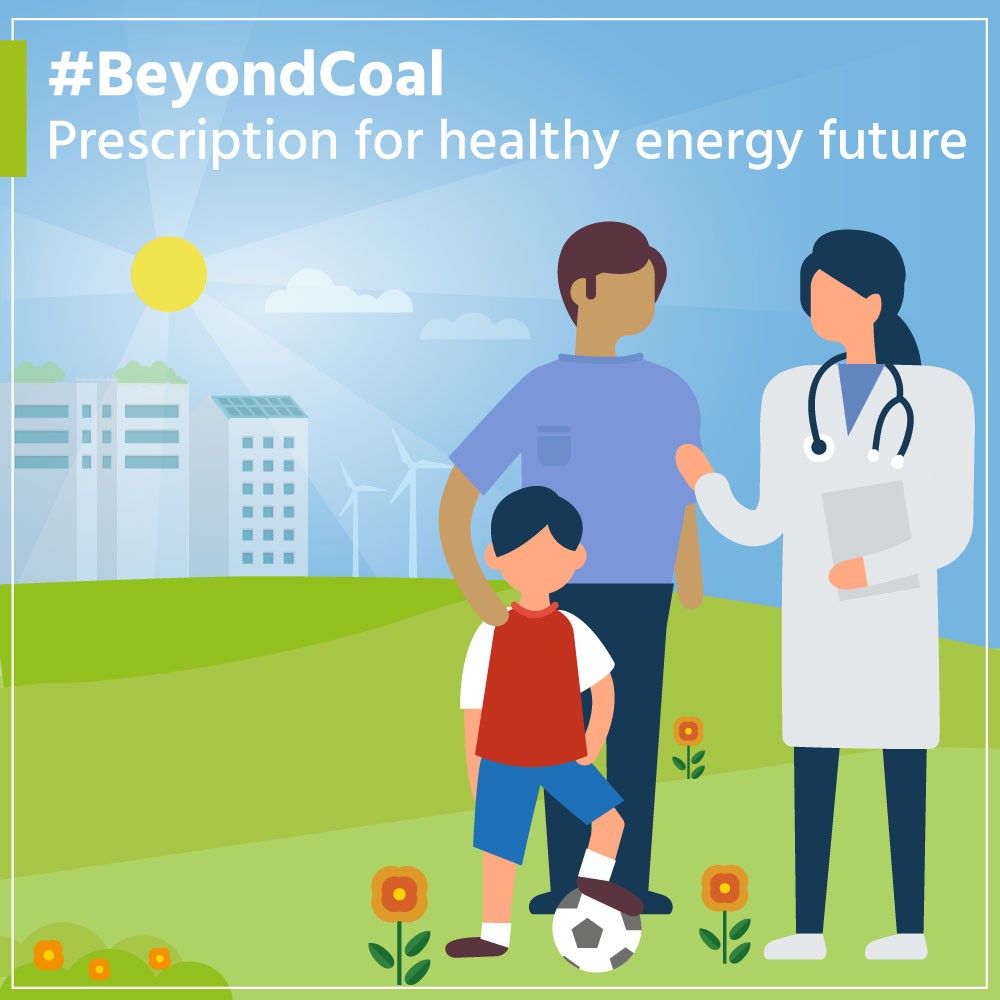Climate change, environmental pollution and biodiversity loss affect people’s health and generate multi-billion-euro economic losses, as a briefing produced by HEAL Poland under the patronage of the Institute of Water Economy and Meteorology of the National Research Institute and the Polish Federation of Asthma, Allergy, and COPD Patients Associations highlights.
by Anne Stauffer, HEAL’s director for Strategy and Campaigns
 Last Friday, the world saw millions of people calling for urgent action on climate change. The student strikers were joined by parents and grandparents, scientists, trade unionists and many health and medical professionals. Health engagement on climate change is at an all-time high: what started ten years ago with a handful of people including the World Health Organization raising the health dimension of climate change has developed into a defining theme for the whole sector.
Last Friday, the world saw millions of people calling for urgent action on climate change. The student strikers were joined by parents and grandparents, scientists, trade unionists and many health and medical professionals. Health engagement on climate change is at an all-time high: what started ten years ago with a handful of people including the World Health Organization raising the health dimension of climate change has developed into a defining theme for the whole sector.
While yesterday’s UN Climate Summit brought only lukewarm commitments, one thing is clear: World leaders cannot continue to try to fix the climate crisis with plasters, they need to take a holistic approach. The health sector has a key role to play in guiding policy actions on tackling the source of the problem.
The science on the links between climate and health is clear: climate change is the greatest threat to public health of the 21st century. The world’s dependency on fossil fuels has come with a huge health bill from pollution, not to speak of the health impacts from a changing climate with more extreme weather events, a prolonged allergy season and increased vector-borne disease.
This means climate mitigation as a way of prevention is all the more urgent. And again the science is clear that decarbonisation will bring huge health benefits. Which can in many cases, and especially in developing countries, offset mitigation costs.
Today, HEAL launches the Prescription for a Healthy Energy Future for Europe, to shine a light on the health benefits the transformation of the energy sector will bring, and bring to the forefront those areas where change is urgently needed. We will eventually include transport and food production as well.
Over the next weeks, HEAL will be showcasing evidence and stories of 20 of Europe’s most health-problematic coal power plants, and developing solutions together with health experts and those whose health is affected by coal pollution.
Despite all commitments to climate action, Europe still a long way from kicking the fossil fuel habit. 257 coal power plants are still running across the European region (excluding Russia, Ukraine Belarus), and in the Balkans region and Turkey new projects are in the pipeline. The latest information on the EU countries commitments in the National Energy and Climate Plans show a gap between the 2030 goal for the renewables share and the actual investments at national level.
Coal power plants are not only a major contributor to global warming with the release of CO2, they also emit thousands of tons of hazardous air pollutants, which harm our health. Air pollution is the top environmental risk to health in Europe and globally. My own country, Germany, is still heavily dependent on coal, being the world’s top producer and consumer of lignite, the most polluting form of coal, and about 40% of its electricity generated by coal. The country’s phase out date of 2038 is woefully inadequate to address the climate crisis, as is the government’s latest proposal for a climate package to reach its 2030 CO2 emissions reduction target.
It is high time to stop treating symptoms hoping they will just disappear. The climate emergency is real, and the transformation in energy, transport, buildings, agriculture urgently needs to happen, with a holistic prescription for a healthier future.

